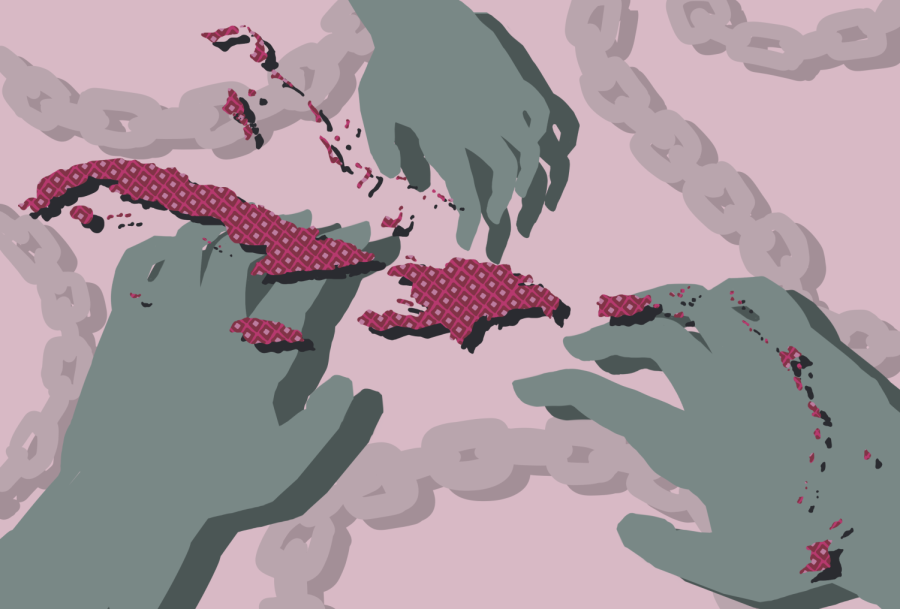Colonialism produces gaps in scientific understanding of Caribbean, researchers find
June 26, 2022
The Caribbean is a region recognized for its rich biodiversity, but the long-standing legacy of colonialism continues to create gaps in scientists’ understanding of the area’s natural history. This results in a lack of international and local collaboration in ecological studies of the region, a recent paper by international researchers shows.
“If you think about colonial systems, there was a lot of extraction of resources and development of infrastructure to get those resources out,” said Melissa Kemp, a senior author of the study and assistant professor of integrative biology at UT.
“There was no real investment in the communities and educating communities unless it was leading to extracting materials for your own consumption or your own wealth. I think scientists can fall into that trap as well,” Kemp said.
The paper’s researchers analyzed natural history collections in Trinidad and Tobago and international biology collaborations and historical research in The Bahamas to exemplify the colonial framing of research conducted in the Caribbean. The paper highlighted a lack of collaboration between local and foreign researchers on projects done on the islands.
Researchers in the region may have the data from these projects, but lack funds and publishing opportunities, said Ryan Mohammed, lead author and postdoctoral research fellow at Williams College.
The study also described a skewed, post-colonial perspective on biodiversity within the Caribbean that falsely views the region as “pristine” and untouched by humans.
“People have been inhabiting The Bahamas for hundreds of years even prior to Columbus arriving in the new world,” said Kelly Fowler, senior assistant archaeologist and research officer at the National Museum of The Bahamas.
“The continental people who would have originally occupied the islands would have brought certain plants and animals with them.” Fowler said. “You can’t just assume that what you see here has always been here.”
The colonial practice of extracting resources with no benefit to the native community plays out in research done today, Kemp said, when resources are extracted with no intellectual investment in the local communities who assist in data collection. Where the research materials go after extraction is vital, too. The vast majority of specimens from Trinidad and Tobago and other islands are housed in North American and European institutions, limiting data access for local researchers.
“Even though fossils were present in Trinidad, these fossils were really inaccessible to people living in Trinidad and unknown to a lot of people because they have simply been sent out to other institutions abroad,” said Alexis Mychajliw, senior author and assistant professor at Middlebury College.
To break the colonial framing, research needs to be collaborative and accessible, Mohammed said. He suggests that foreign researchers in the Caribbean engage with local communities and ministries to produce more efficient and productive findings. He also said research in the region should be published on free international databases so access is no longer restricted and extracted fossils are returned to local researchers.
“One thing the paper did not address was the issues … within Caribbean countries,” Mohammed said. “Data is held close to your chest and not shared because of fear of … extorting data sets, a fear of losing control of biodiverse resources, et cetera. … (If it’s) not accessible for everyone, then it’s the same (as) colonialism all over again where nothing will be shared, but it’s just governed by someone else.”
U.S. researchers have the responsibility to communicate with local groups and take their research interests into consideration, Mychajliw said.
“It has definitely challenged me to think more deeply about how I’m connecting with communities, particularly at the beginning of a project, and making sure that I’m engaged with not only the research questions, but the communities in which these questions are being answered,” Kemp said.



